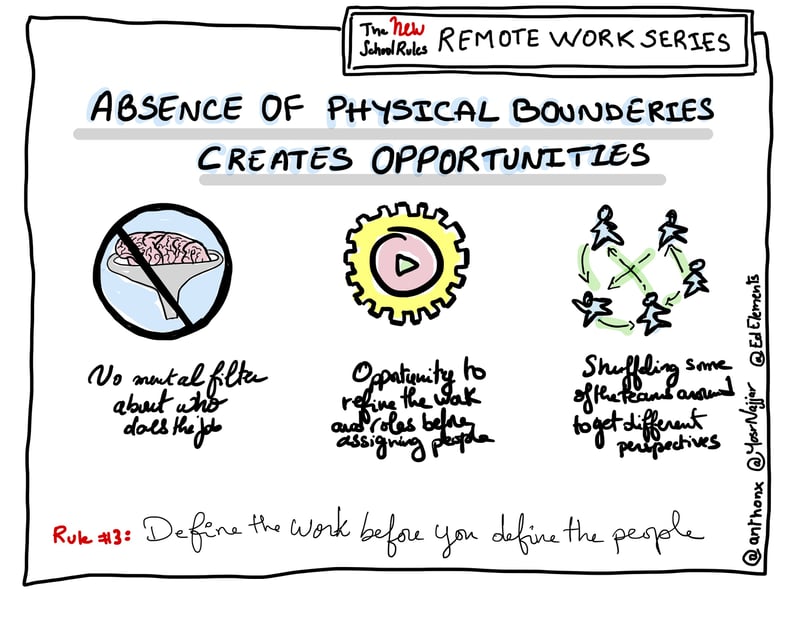Many organizations are learning how they can push their work forward as they transition from in-person to virtual collaboration. No longer confined by the physical limitations that come with an office space, leaders must also recognize the opportunity that virtual work brings to more thoughtfully reflect on how work gets defined and how it gets delegated to team members. Defining the work before defining team roles is essential for individual growth and improving organizational decision-making.
Typically, organizations solve problems by first acknowledging that they exist and then finding someone to fix them on their own. However, spending time to really understand the problem and chart a plan for how it can be solved can open new doors for the kind of collaboration and collective skill-building that improves organizational decision-making and fosters individual growth. We can understand the importance of defining the work before the roles by observing the role car sensors play in keeping the cars we drive safe for the road. A typical car possesses a number of sensors that measure engine airflow as well as fuel temperature. Before any of these sensors were ever built, an engineer determined all of the information a car needs to measure and control to function safely.
Missed the previous post? Check out Part 3 of the Remote Work Series:
Like the car engineer, leaders must also identify the kind of information that is needed to fulfill an organizational need. While experience is immensely valuable, considering new perspectives and approaches is equally important to preparing a team to make a decision. By opening up the floor to new diverse ideas, you also provide opportunities for team members to step up and contribute in significant ways. This can in turn boost team members’ sense of belonging on a team and their overall confidence. Once the work has been defined, it’s time to think about how you delegate tasks to your team.

What’s unique about remote work is that we have to communicate more frequently and more clearly when trying to determine a project or task owner as well as who needs to be kept informed about progress. It’s crucial for leaders to have a set of communication tools and to think about when to utilize which for organizational purposes. For example, when sending an email to multiple recipients, it’s important to ensure that you are clear about who is expected to complete any given tasks.
Luckily, we have tools at our disposal to help clarify the task delegation process. Google Docs, for example, allows you to tag a colleague and assign tasks that land in their inbox. When delegating tasks via email, you might avoid emailing 15 team members one task that belongs to just a few. Similarly, you might avoid assigning too many colleagues to a single task on Google Docs so as to avoid confusion. The same amount of thought and intention should go into communicating tasks when working remotely.
Transitioning to virtual work can present many challenges to your organization. But collaborative reflection and thoughtful communication can enhance your team’s productivity and growth in such an uncertain time.
Check out my video "Define the Work Before You Define the People" as part of the Remote Work series.
Subscribe to my YouTube channel to check out the rest of the series, and for more videos about learning organizations, team habits, and leadership.
Looking for the next post in the Remote Work Series?
Check out: Aim For Safe Enough to Try





